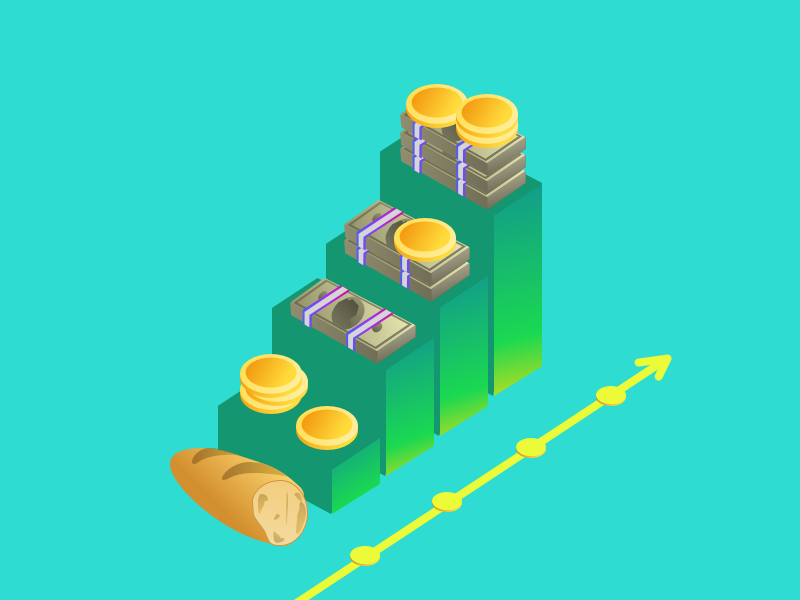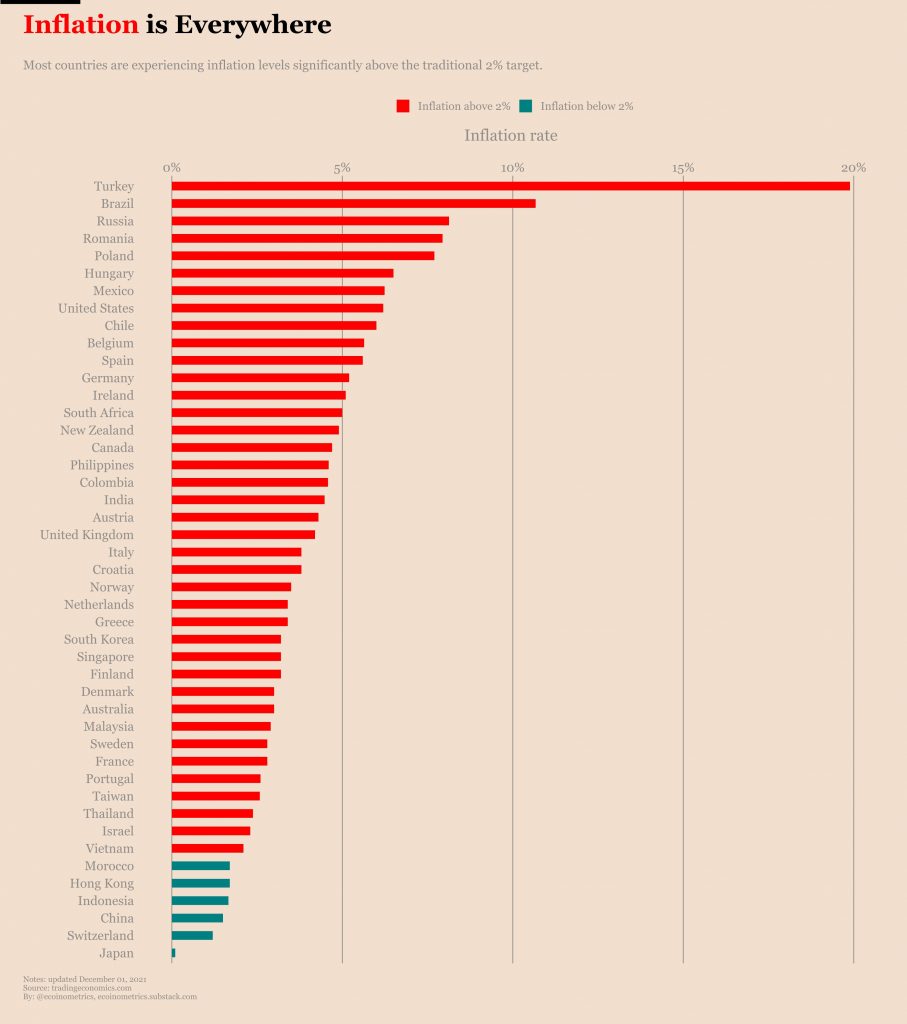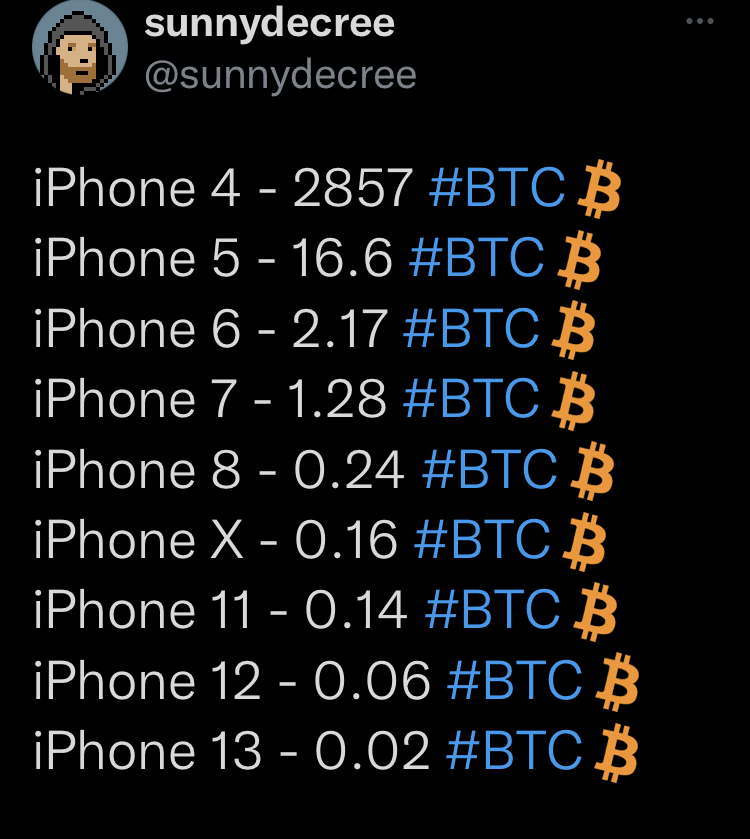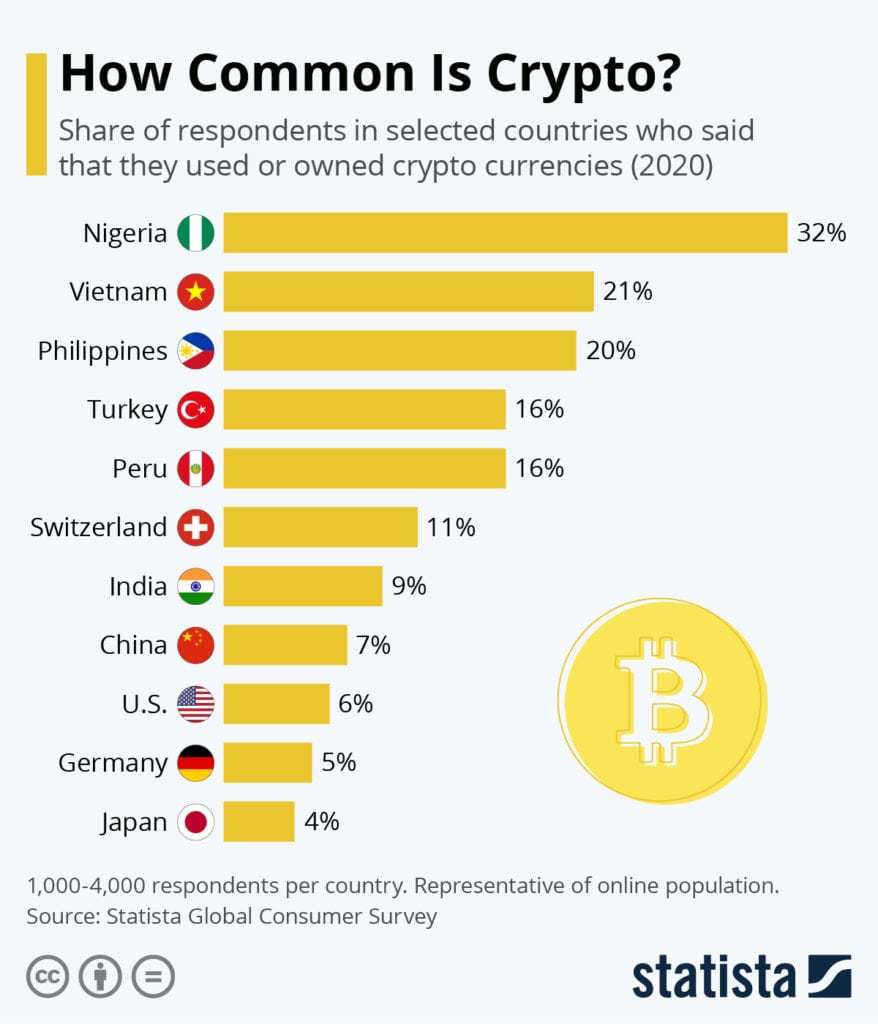Bitcoin as a Hedge Against Inflation

The money supply continues to grow, making the value of the currency decrease and causing inflation. This has triggered many people to look for alternative means of exchange whose value continues to increase, one of which is Bitcoin.
Article Summary
- 📉 A country experiences inflation due to many factors, but the main factors are excess money printing, a slumping economy, and excess money supply.
- 🚀 Bitcoin, which has a limited amount of 21 million, is considered as a hedge against inflation due to its increasing value.
What causes inflation and what are its effects?
Inflation is a measure of the increase rate in the price of goods and services within the economy. Inflation causes an increase in the price of basic necessities such as food, which can have a negative impact on society. Inflation erodes consumer purchasing power and can even disrupt people’s purchasing power in the future.
According to the economist Keynes, several factors that cause inflation include demand pull inflation and cost pull inflation. Demand pull inflation occurs due to increased demand for goods and services, resulting in an increase in prices. Meanwhile, a cost pull inflation occurs due to an increase in production costs (input), such as an increase in labor wages or an increase in fuel prices.
However, inflation can also occur due to an increase in the amount of money and credit. Inflation in this case is not defined as an increase in prices, but this is the long-term effect of an increase in the money supply and bank credit.
As money increases, the prices of some commodities and services will rise; Other prices have also gone up. Generally, people don’t expect prices to go up but they expect prices to fall. This illustrates the situation today, economists are more worried about deflation and people are saving cash and deposits….. As price increases accelerate, governments blame speculation and profiteering, and they introduce price controls that inevitably lead to shortages of many goods. tree. When people realize that money is losing purchasing power, they are spending it more and more as quickly as possible. It will cause chaos and currency will be destroyed – Ludwig Von Mises
The effects of inflation include:
- Inflation will reduce people’s purchasing power
- Inflation will trigger spending rather than saving
- Inflation will trigger even more severe inflation
- Inflation will trigger the weakening of our currency
For example, we can see what is happening in countries like the Weimar Republic and Zimbabwe.
Hyperinflation in Germany
After the defeat in the first world war, the German government had to bear the cost of reparations for the countries that won the war in the form of gold or silver. As a result of this defeat, the German government lost territory and soldiers. Germany used bonds to finance the first world war, so the German government had a large debt to finance the war. It is estimated that the number of bonds to finance the war amounted to 175% of Germany’s total GDP.
To overcome this, the government prints money to pay debts and also bears the cost of reparations. This incident was so severe that in early 1922 the price of 1 loaf of bread was equivalent to 163 marcs, in September 1923, 1 loaf of bread was equivalent to 1.5 billion marcs and in the next two months, 1 loaf of bread was equivalent to 200 billion marcs.
People even receive an hourly salary, and it is very common to see people using carts to carry money everywhere. Inflation was so high that the marcs burned to warm homes. The government finally replaced the currency with gold-backed to stabilize this economic situation.
Hyperinflation in Zimbabwe
After the struggle against colonialism, in 1982, Zimbabwe gained its independence. Robert Mugabe became the leader of Zimbabwe and led in an authoritarian way under the auspices of one party.
In 2000 Robert Mugabe introduced a land reform program that prohibited white people from owning land and compensation, forgoing cooperation with the British government. Which mostly white people do farming in Zimbabwe. The Central Bank provides loans to indigenous people to run agriculture. The experienced white peasants were replaced by novice native farmers.
Zimbabwe’s agriculture has fallen into disrepair due to the incompetence of indigenous farmers, not to mention the drought. Because agriculture does not produce, the economy stagnates. There was a food shortage and there were protests everywhere. Due to the instability of the economy, foreign investors are also reluctant to invest in Zimbabwe. Since independence and Mugabe’s rule, the Zimbabwean government has always run a deficit and hyperinflation has started to occur.
The government redenominated, setting a limit on taking money equal to 1 dollar per day. In the end, people choose to use other countries’ currencies such as dollars, euros, and even Bitcoin. In 2009, Zimbabwe finally stopped using its currency and replaced the Zimbabwean dollar with the US dollar and other currencies. Until now, Zimbabwe is still experiencing hyperinflation of more than 50% every month.
Why is Bitcoin the choice as an inflation anchor?
Based on the examples of the two hyperinflation events above, we can see the effect of excessive printing of money. Bitcoin has a limited amount of only 21 million Bitcoins, in contrast to fiat money which is in unlimited supply.
In fact, the government is targeting an inflation rate of 2% per year. This means that every year the value of our currency decreases by 2%. But in reality some countries even experienced inflation of more than 2%.

Bitcoin with a limited amount has the opposite property of inflation, namely deflation. Deflation is a condition in which the value of the currency increases and the prices of goods decrease. Deflation is very beneficial for consumers because they can buy more goods
Let’s look at the comparison of the price of the iPhone when compared to rupiah and bitcoin. With a system of deflation, prices are getting cheaper. And with the inflation system, the prices are getting more expensive.

Examples of using bitcoin to avoid inflation in various countries
With the instability of fiat currencies in some countries, they use Bitcoin as their anchor to fight inflation. Here are some examples of countries where people are currently actively using Bitcoin to fight inflation.
Argentina
Argentina’s inflation rate is the fourth highest in the world, at around 24%. Recently, former President of Argentina, Cristina Fernández de Kirchner tried to stabilize inflation by fixing the exchange rate between the peso and the dollar. He then restricted access to dollars in Argentina to avoid depleting the supply of US dollar reserves, which is the most stable asset of the Argentine Central Bank.
These currency controls made it nearly impossible for Argentines to earn US dollars outside the black market. The Argentine peso is closely related to the US dollar because various Argentine governments use the dollar to help stabilize the peso and lower inflation. The peso is linked to the dollar in a one-to-one ratio. But because Argentina’s central bank prints excess money, this ratio changes to 9:1 even on the black market it can reach 16:1.
The Argentinean people initially used the dollar as their anchor from inflation but access to dollars was getting more difficult, the government strictly guarded the US dollar trade, even making it difficult for people who wanted to buy dollars physically or digitally. Argentineans sometimes even have two paypal accounts, one argentina pesso account and the other a US dollar account. They pretend to sell goods from Argentina and buy them themselves in order to get dollars. Paypal will soon convert Argentine pesos into dollars using government rates. Then they would ask someone from the United States to withdraw the money and send it to Argentina. This is an example of how complicated the process Argentines have to go in order to secure their property.
The Role of Bitcoin in Argentina
According to estimates, bitcoin users in Argentina trade $70,000-$80,000 over the counter per day. There are about 145 businesses in Buenos Aires that accept bitcoin (including at least one Subway sandwich shop). According to Wences Casares, a businessman from Argentina, the use of bitcoin in Argentina is very real. “People who use bitcoin don’t know the technology, they’re not financially savvy. They use bitcoin every day, not because they think it’s cool or glamorous but because it solves their problem.”
There are several thriving Argentinian communities that are actively promoting the use of bitcoin and the development of bitcoin infrastructure in Argentina. One example is Bitcoin Argentina, a non-profit organization that aims to advance the use of Bitcoin in Argentina. This organization works closely with universities to produce quality papers and information about Bitcoin. He also hosts individual meetings within the Bitcoin community in Argentina and provides educational seminars for businesses to tell them about Bitcoin.
Turkey
Since the 1980s, Turkey has experienced a financial crisis, and one way to deal with this crisis is to print more money. Turkey prints 20% more money every year. The unstable government and dictatorial conditions made the Turkish economy not for the better. President Erdoan also lowered interest rates, making inflation worse. Lowering interest rates means making money cheaper and more plentiful.
Currently Turkey’s inflation reaches 18% per year. This means that prices in Turkey are 18% more expensive annually. Therefore, the Turkish people are looking for alternatives to protect the value of their currency from inflation. In 2017, Turkey’s GDP fell drastically from US$950 billion to US$720 billion. The economy has not yet recovered due to inappropriate policies and state instability.

Role of Bitcoin in Turkey
For generations, Turks have bought real estate or gold to save them against inflation. With the development of crypto assets, Turkish people have turned to buying crypto assets. Currently the search “Cryptocurrency” on google is ranked first in Turkey. Some vendors are starting to accept Bitcoin. And trading volume in Turkey reached 218 billion lira in one month (from February to March 2021) compared to the previous year which was only 1 billion lira.
Based on data from crypto exchanges in Turkey in January 2021, Bitcoin price in Turkey is $500 US more expensive compared to other countries. Lira is more volatile than Bitcoin, which makes people prefer to store their wealth in crypto.
In April 2021, the Central Bank of Turkey decided to ban the use of cryptocurrencies for payments. This also led to demonstrations by Turkish citizens.

Nigerian
In 2019, Nigeria’s GDP per capita was $2,229, with inflation running rampant for the fourth year in a row, reaching 17.3% annually in 2016. This was due to the fall in oil prices which eroded the Nigerian economy as petroleum is a major export. Nigeria. This causes food prices to rise by 21.8% in February 2021.
To overcome this, the Central Bank of Nigeria prohibited the entry of US Dollar imports. The Central Bank of Nigeria also prohibits purchases of goods exceeding US$500. But this actually makes inflation worse.
The Role of Bitcoin in Nigeria
With reduced economic movement, difficulty in sending money between countries, Nigerians are turning to crypto assets. With 210 million population almost 90% more own a smartphone. Bitcoin is the choice of the Nigerian people to deal with inflation.

Even though the Central Bank of Nigeria banned the buying and selling of crypto assets, the price of Bitcoin even reached $80,000 in Nigeria due to high demand. And it is almost impossible for the Central Bank of Nigeria to prohibit its citizens from transacting buying and selling bitcoins because the majority of Nigerians use peer-to-peer services. The price of bitcoin is also inconsistent because the price of dollars with naira also varies both in the forex market and on the black market.
Conclusion
Countries experience inflation due to many factors, but the main factors are excess money printing, a slumping economy and excess money circulation in the country. For countries experiencing inflation, residents will look for assets or money that is more reliable than their currency. Bitcoin offers these countries a solution because of its open and borderless nature.
Referensi
- Moreno, Elena Christine. 2016. Bitcoin in Argentina : Inflation, Currency Restrictions, and the Rise of Cryptocurrency. University of Chicago Law School. Accessed on 30 November 2021. https://chicagounbound.uchicago.edu/cgi/viewcontent.cgi?article=1017&context=international_immersion_program_papers
- Fries, Tim. 2021, November 18. How Nigeria’s Soaring Inflation Demonstrates a Real-World Use-Case for Bitcoin. The Tokenist. Accessed on 30 November 2021. https://tokenist.com/how-nigerias-soaring-inflation-demonstrates-a-real-world-use-case-for-bitcoin/
- Handagama, Sandali. 2021, Feb 24. In Nigeria, One Bitcoin Can Cost $68,000. Here’s Why. Coindesk. Accessed on 30 November 2021 https://www.coindesk.com/markets/2021/02/23/in-nigeria-one-bitcoin-can-cost-68000-heres-why/
- McKernan, Bethan. 2021, April 13. Turkey’s economic turmoil drives Bitcoin frenzy. Accessed on 30 November 2021. https://www.theguardian.com/world/2021/apr/13/turkeys-economic-turmoil-drives-bitcoin-frenzy
Share


